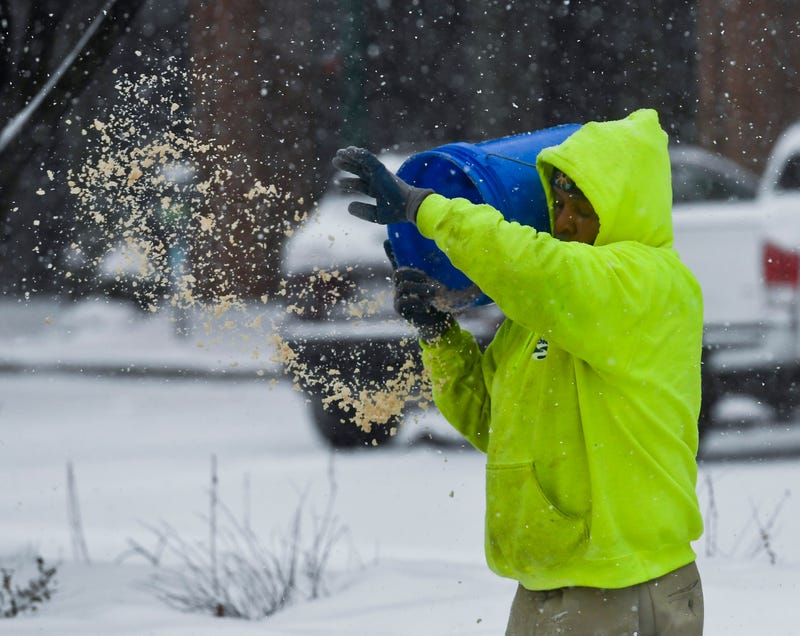
PHILADELPHIA (KYW Newsradio) — Snow from last winter is a long-forgotten thought, but the salt used to clear it may still be lurking around. Delaware County is asking the public to help figure out how the leftover salt is impacting our waterways.
According to Delaware County Sustainability Officer Rebecca Yurkovich, road salt can cause significant damage to infrastructure as well as the health of streams and lakes.
“It can be really detrimental to overall water health if we’re seeing both plants and animals are no longer able to thrive in their own natural environments,” she said. “Our fish, macroinvertebrates, algae and everything like that, they are built for freshwater conditions, but now they are being introduced to salt, what is expected to be year-round, and they can’t cope with that, so they can no longer live or thrive in our freshwater environments.”
The Stroud Water Research Center is conducting the study. Residents can sign up to take water samples from their local creeks and submit them for testing.
“That will be providing a direct impact to the study, and the data points will show the impact across our region,” Yurkovich added.
If researchers discover that there is a significant impact from the salt runoff, officials will investigate how to fix it.
For more information, visit stroudcenter.org/salt.
